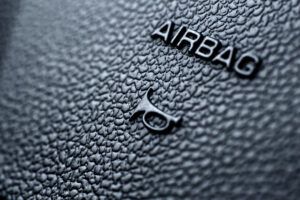
NHTSA makes initial decision on ARC air bag recall, schedules October public meeting
By onLegal
The National Highway Traffic Safety Administration (NHTSA) has come to an initial decision to recall 52 million air bag driver and passenger inflators manufactured by ARC Automotive and Delphi Automotive Systems through January 2018.
“These air bag inflators may rupture when the vehicle’s air bag is commanded to deploy, causing metal debris to be forcefully ejected into the passenger compartment of the vehicle. A rupturing air bag inflator poses an unreasonable risk of serious injury or death to vehicle occupants,” NHTSA wrote in its decision. “At least seven people have been injured and one person has been killed by these rupturing air bag inflators within the United States.
“Based on its investigation, NHTSA believes that ruptures may result from the weld slag produced by the friction welding manufacturing process. Should weld slag of a sufficient size become dislodged, it can cause a blockage of the inflator exit orifice when the air bag deploys. A blockage of sufficient size will cause an over-pressurization and rupture of the inflator, leading to the potential forced propulsion of shrapnel or metal fragments from the inflator into the passenger compartment. Additional inflator ruptures are expected to occur in the future, risking more serious injuries and deaths, if they are not recalled and replaced.”
ARC took steps to address the issue in January 2018 through the completion of borescope installation on its toroidal inflator manufacturing lines, which is meant to detect the occurrence of excess weld slag or other debris in its inflators, according to NHTSA. The administration says there have been no known field ruptures in ARC’s hybrid, toroidal inflators manufactured after January 2018.
A federal class action lawsuit was filed in May against ARC Automotive, Audi, Volkswagen, General Motors, and Ford for use of the propellant in their airbag inflators. A notice of voluntary dismissal without prejudice was filed by the plaintiffs in August because the defendants haven’t served an answer or moved for summary judgment, according to the notice.
NHTSA’s move regarding ARC announced this week requests ARC and Delphi recall for defects in 41 million frontal hybrid, toroidal driver, and passenger inflators manufactured by ARC from 2000 through the implementation of the borescope examination process in January 2018 as well as 11 million driver hybrid, toroidal inflators manufactured by Delphi under its licensing agreement with ARC.
A hybrid inflator uses stored gas that is excited by the propellant to fill the air bag cushion, according to NHTSA, while toroidal inflators are round, non-cylindrical inflators. The subject inflators include both single-stage and dual-stage inflators.
NHTSA says the inflators were incorporated into air bag modules used in vehicles manufactured by BMW of North America, FCA, Ford Motor Co., General Motors, Hyundai Motor America, Kia America, Maserati North America, Mercedes-Benz USA, Porsche Cars North America, Tesla, Toyota Motor North America, and Volkswagen Group of America.
NHTSA is also aware of at least two confirmed field ruptures, one in Canada and the other in Turkey.
In May, NHTSA asked ARC to recall 67 million of its inflators but the company refused, saying that NHTSA doesn’t have the authority to demand recalls from original equipment manufacturers. ARC also said there is no way to know for sure if its air bag inflators will rupture.
NHTSA says in its initial decision that, “ARC’s argument that the root cause has not been confirmed,’ or purportedly is not the cause of some of the ruptures is not a reason for delaying a recall.”
“…ARC’s attempts to distinguish the ruptures from each other misses the point. The fact that the subject population has experienced seven confirmed ruptures, no matter the root cause, warrants the initial determination of a safety defect. A failure of an air bag inflator has far more serious safety consequences than that of most other vehicle equipment… ARC inappropriately minimizes the severity of risk from its rupturing inflators by describing these events as manufacturing anomalies or a part of normal business.”
NHTSA opened a preliminary evaluation on the inflators in July 2015, which was prompted by reports of driver air bag inflator ruptures in a 2002 Chrysler Town & Country and a 2004 Kia Optima.
NHTSA will hold a public meeting regarding its decision at USDOT headquarters in Washington, D.C. on Oct. 5. Registration to attend or speak at the meeting is required by the close of business on Sept. 22. The meeting will be livestreamed online.
Images
Featured image: welcomia/iStock
